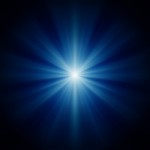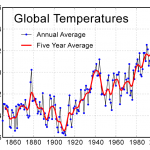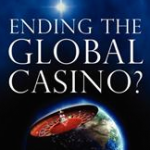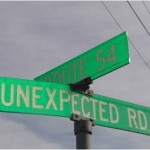Het was weer de tijd van de voornemens voor het nieuwe jaar. Maar u weet, de weg naar de hel. . . De weg naar de hemel ook trouwens. Waar we in feite naar toe gaan weten we natuurlijk niet – naar het einde in elk geval.
Wat houden die voornemens in? Eigenlijk komen ze allemaal op hetzelfde neer. Het zijn concretiseringen van ons verlangen een goed mens te zijn, of een beter mens te worden. Maar wat is goed, wat is beter? De meeste terroristen beschouwen zichzelf als goede mensen.
Er is al decennia een discussie gaande over wie of wat een goed mens, een ‘Gutmensch’ nu eigenlijk is. Sinds de nazi’s deze termen als scheldwoord gebruikten voor mensen van goede wil, die zich verzetten tegen het nationaal socialisme, is het in populistische en extreem rechtse kringen nog steeds een populair scheldwoord voor weldenkende mensen (zoals Merkel bijvoorbeeld). Wat zij die dit woord als scheldwoord gebruiken zich wellicht niet realiseren is dat de tegenpool van de Gutmensch de Übermensch is: de aristocraat, een heerser, eentje die zelf waarden schept, een roofdier met een sterk, nietsontziend karakter, voornaam en afstandelijk, maar bovenal: vrij van rancune. De gebruikers van het woord zijn schatplichtig aan Nietzsche, die het woord ‘Gutmensch’ heeft ingevoerd en heeft gesteld tegenover de Übermensch. Wie de Gutmensch veracht moet de Übermensch eren (Schnitzler in de Volkskrant, 30/9/2011). Het zich afzetten tegen de Gutmensch impliceert twee zaken: het zich afzetten tegen iedere vorm van altruïsme, zoals Nietzsche en in zijn voetspoor Ayn Rand doen (daarop is het neo-liberalisme gebaseerd), en een verlangen naar een sterke leider (terwijl diegenen die de term gebruiken zich juist afzetten tegen iedere vorm van elite. Maar zonder elite gaat het in de wereld niet).
Maar stel dat we wel degelijk mensen willen zijn van goede wil. Waar gaat het ons dan om? Willen we goede mensen zijn, of willen we goede dingen doen? In het eerste geval komt het erop aan de klassieke, kardinale deugden in onszelf te ontwikkelen: moed, gematigdheid, verstandigheid en rechtvaardigheid (deugdenethiek). Als we daarentegen ons willen richten op ons handelen dan kunnen we te rade gaan bij de plichtethiek van Kant: de categorische imperatief schrijft dan voor dat we zo behoren te handelen jegens anderen als we zouden willen dat die anderen jegens onszelf zouden handelen.
Zelf kan ik me in deze beide ethische theorieën niet zo goed vinden. Ze worden door mij ervaren als een morele druk, waartegen ik neig me te verzetten. Ik geloof meer in een persoonlijke ethiek waarbij we ons in elke situatie laten leiden door onze innerlijke gids, ons zuivere geweten (datgene wat we al wisten voor dat we onze normen hebben aangeleerd). Je zou dat ook een waarde ethiek kunnen noemen, voor zover dat geweten is gefundeerd op enkele boven-persoonlijke waarden. Deze ethiek vraagt een grote mate van bewustwording, en als we derhalve een ‘beter’ mens willen worden zullen we continu moeten werken aan ons (zelf)inzicht en openheid van geest. Diegenen die dat doen kunnen zich niet verbinden met godsdienstige of politieke ideologieën of een starre dogmatiek. Zij vormen misschien dan geen elite, maar zeker een voorhoede op weg naar het einde. Welk einde, wanneer? Misschien de dood, of het einde van onze beschaving. Maar het zou ook het einde kunnen zijn van onverschilligheid en destructie. Dat geloof ik.









